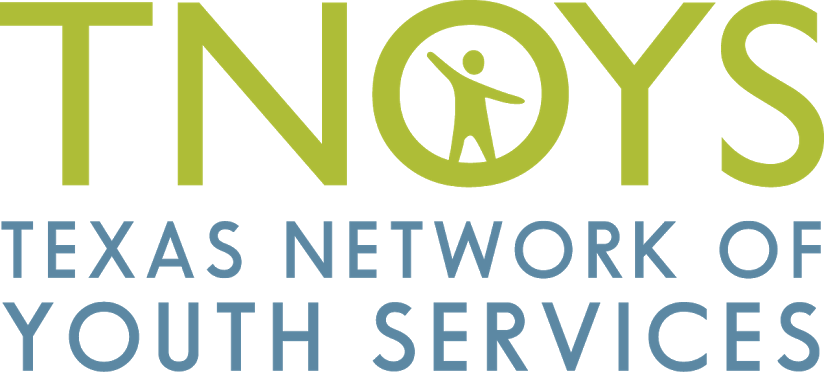
We Are Vaxxed TX is a new TNOYS campaign to address low COVID-19 vaccination rates among Texas youth and young adults (YYA) who have lived experience in systems.
Through youth-friendly, youth-informed messaging, TNOYS is sharing how YYA can protect themselves and others from COVID-19. Our online resource page is for YYA and direct services providers to find up-to-date information on COVID-19 vaccines and how to combat vaccine hesitancy.
Resources for Providers
COVID-19 Vaccine Communications Toolkit
TNOYS’ communications toolkit was developed in partnership with our Young Adult Leadership Council (YALC). It includes youth-focused, fact-based materials to help providers discuss COVID-19 and vaccines with young people, answer common questions, and debunk myths. Toolkit materials are free to download for anyone who works with youth or young adults.
Downloadable resources include:
- Vaccines are safe and effective Booklet
- Getting a Vaccine 101 Appointment Flyer
- Vaccine Myths and Facts Poster Series
- Sample Social Media Posts
- And much more!
Tools for Discussing COVID-19 Vaccine Hesitancy
TNOYS has listened to and learned from a wide range of systems-involved youth and young adults (YYA) about their questions and concerns surrounding COVID-19 vaccines. In collaboration with YYA, TNOYS developed guidance for providers to combat misinformation and build trust through empathetic discussions that meet young people where they are. TNOYS’ handouts provide guidance:
- Frequently Asked Questions
- Caring Conversations: How to Talk to Youth and Young Adults About COVID-19 Vaccine Hesitancy
Resources for Youth and Young Adults
COVID-19 can lead to serious illness, long-term symptoms, or outcomes like missing school or work. There are several ways to protect yourself and those around you. Be sure to:
- Consider wearing a mask if you are in public or in a group setting. Review masking guidance from the Centers for Disease Control and Prevention (CDC) here.
- If you are unvaccinated, find a vaccine appointment in your area at vaccines.gov.
- Get tested for COVID-19 if you show signs of possible symptoms.
Find A COVID-19 Vaccine Appointment Near You
All COVID-19 vaccines, including your first dose(s) and booster shot, are free to people living in the United States regardless of their immigration status or if they have health insurance. You may be asked to show ID or a health insurance card, but it’s not required. Go to vaccines.gov to find locations near you. Next, call locations in your area or visit their website.
Learning from Lived Experience
As a young person with lived experience in foster care, Montoya Thomas knows that she can’t let a serious illness like COVID-19 get in the way of her plans. Check out Montoya’s advice to young people when considering getting vaccinated against COVID-19:
As a young person who has experienced homelessness, Tiara now works every day to make a difference youth in similar situations. Hear Tiara explain why she decided to get vaccinated— not only for herself, but for others around her as well.
Transportation Options
Can’t get a ride to your COVID-19 vaccine appointment? Below are a few options to help you get there:
1. If you have Medicaid, you can arrange transportation through the Medicaid Transportation Medical Program. To request a ride, call the number on the back or your card at least two workdays before your appointment, or five days before the appointment if it is outside your county. Phones are answered Monday-Friday, 8 a.m.-5 p.m. local time. When requesting a ride, make sure that your vaccine appointment is already set up, and that you have the following information ready:
- Your Medicaid ID or Social Security number
- Your vaccine appointment information, date and time of your appointment, address, and phone number of your appointment location
- Address and phone number of your pickup location
2. If you live in Houston or Austin, these resources can help:
- Houston: Call 211 to connect with potential other transportation options in your zip code area.
- Austin: Call Connect ATX Helpline at (833) 512-CATX
3. Talk to your caseworker or counselor. You can also talk to a trusted adult, like a caseworker or counselor, about other options and resources in your area.
More Resources
Know the Myths and Facts About COVID-19 Vaccines
Source: Centers for Disease Control and Prevention (CDC)
When it comes to COVID-19 vaccines, we know there are a lot of rumors and misinformation out there that can make it hard to tell fact from fiction. The Centers for Disease Control and Prevention (CDC) is the nation’s leading science-based, data-driven service organization that protects the public’s health. Check out the CDC’s website to make sure you can spot untrue information about COVID-19 vaccines.
Source: Mayo Clinic
COVID-19 vaccines help our bodies build immunity to the virus that causes the disease without us having to get sick. Vaccines from Pfizer and Moderna use a special ingredient called mRNA that was developed after years of research into other coronaviruses. Learn more about the process on the Mayo Clinic website, or check out TNOYS’ handout.
What to Expect After Getting Vaccinated
Source: Centers for Disease Control and Prevention (CDC)
After getting the COVID-19 vaccine, you may have some side effects such as swelling, muscle pain, and low fever. This is normal and a sign that the vaccine is working! Learn about what to expect.
Source: Centers for Disease Control and Prevention (CDC)
Boosters are an important part of protecting yourself from getting seriously ill or dying from COVID-19. They are recommended for most people. CDC recommends that people ages 5 years and older receive one updated (bivalent) booster if it has been at least 2 months since their last COVID-19 vaccine dose. Learn more.
